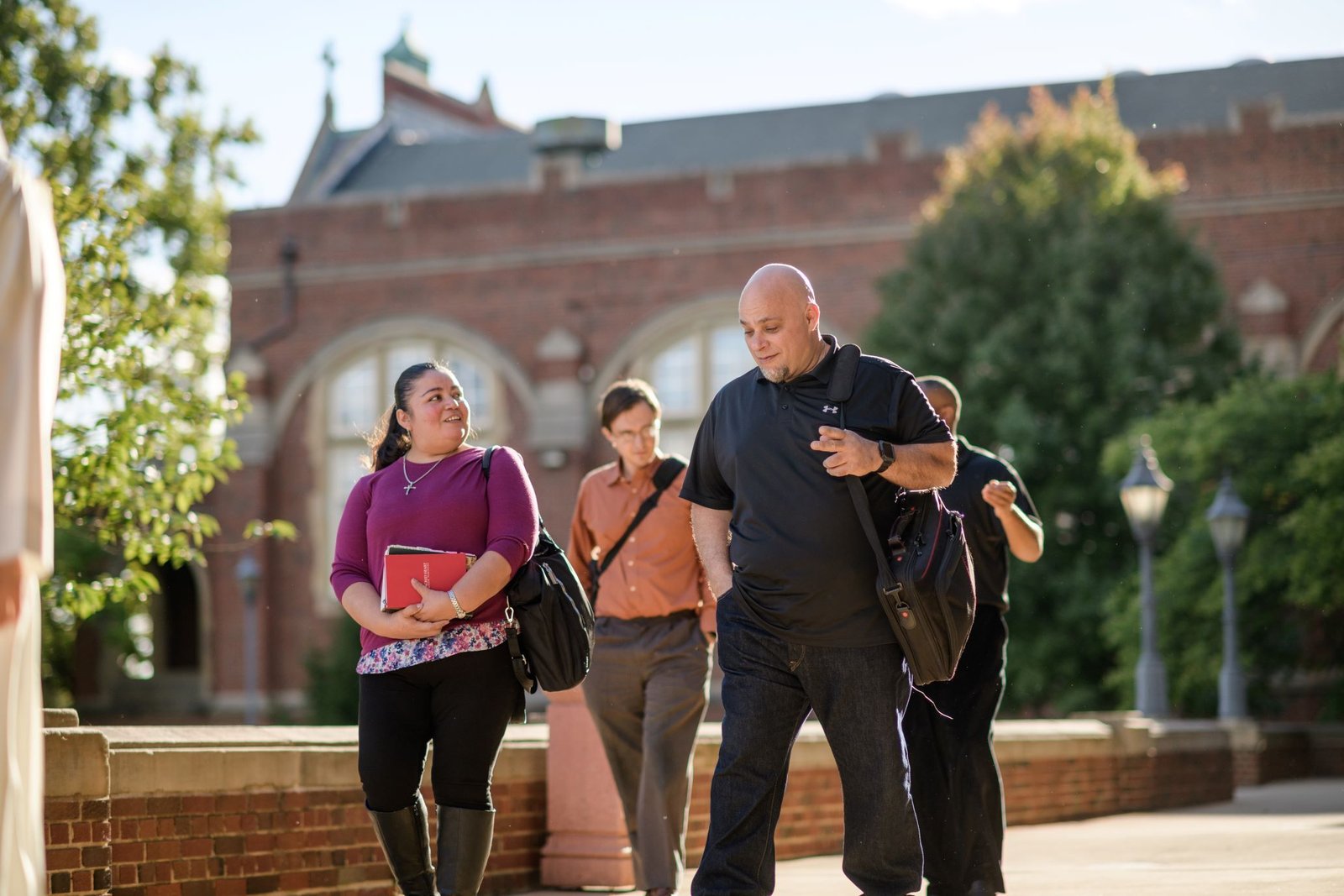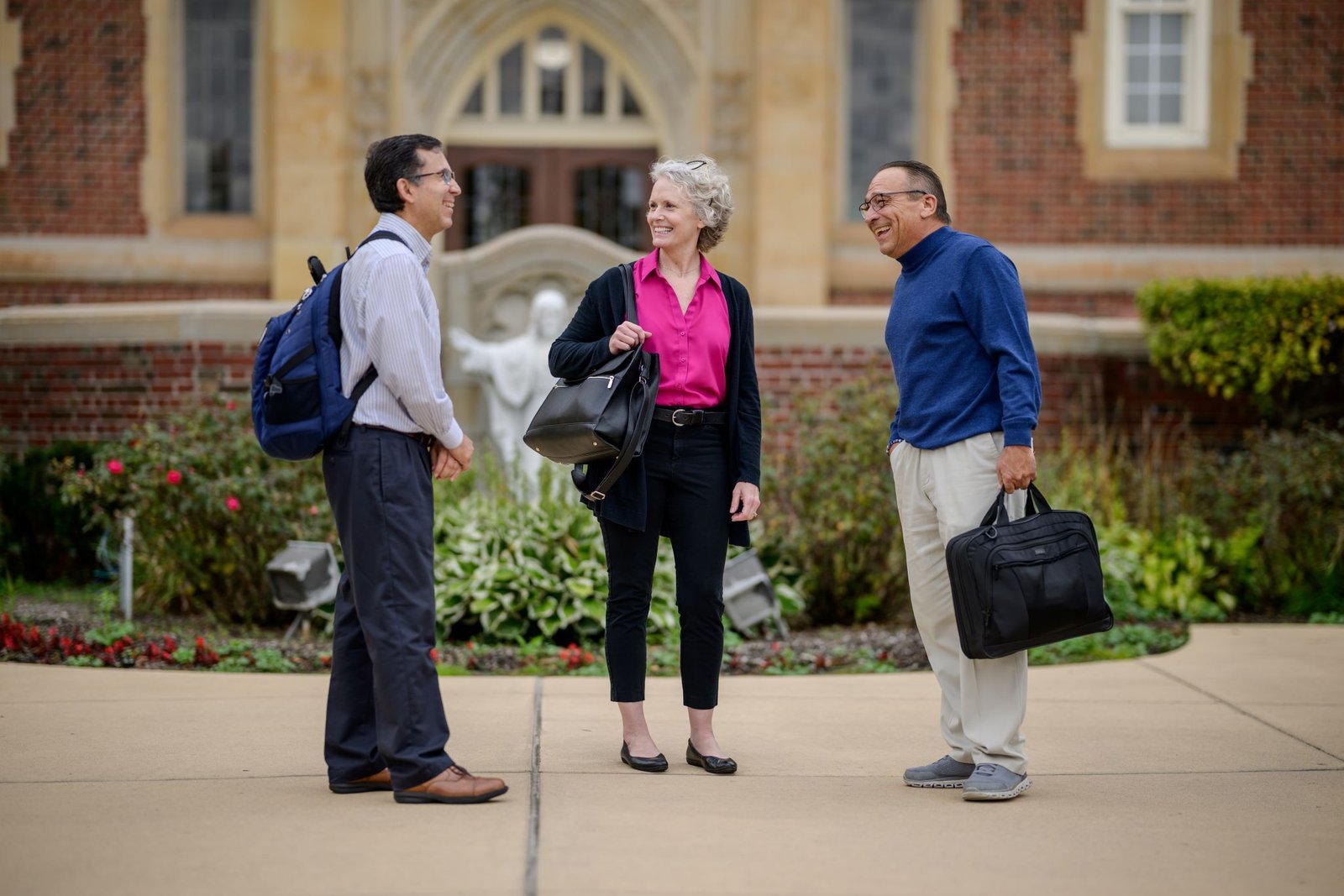New certification process, which goes into effect July 1, will allow ministers to 'fall more in love' with the faith, leaders hope
DETROIT — Youth ministers, marriage prep coordinators, catechists, Catholic school teachers, and other lay evangelists who make parishes beacons of missionary discipleship will have new certification standards to guide them in spiritual and intellectual formation.
The Archdiocese of Detroit and Sacred Heart Major Seminary have rolled out new lay ecclesial ministry certification standards this summer, which go into effect on July 1, to ensure appropriate formation is provided for all who serve the Church in Detroit at various levels.
“These updated standards affirm the essential role of lay ecclesial ministers in the life of our local church,” Detroit Archbishop Edward J. Weisenburger wrote in a letter accompanying the rollout. “Whether through catechesis, youth ministry, worship, or pastoral service, lay ministers witness to the Gospel in powerful and grace-filled ways. This new certification structure — developed in partnership between the Department of Evangelization and Missionary Discipleship and Sacred Heart Major Seminary — is meant to provide a clear and supportive path for growth and leadership in the Church’s mission.”
John Lajiness, director of enrollment management and the registrar at Sacred Heart Major Seminary in Detroit, is coordinating lay ministry certification on behalf of the seminary and the Archdiocese of Detroit.
“Similar to industry certifications in various kinds of fields, lay ministry certification is a set of standards that guides training, or as we call it, formation, for those who aspire to be in ministry as a layman or woman,” Lajiness told Detroit Catholic. “This is for people who work in paid staff positions or other volunteer positions, be it at a parish or a Catholic school or some other Catholic organization. Certification sets a standard of formation and training for people to serve in those roles.”

The new guidelines include baseline certification across four levels: initial/catechist, staff, coordinator and director.
Furthermore, the new standards feature eight ministry-specific endorsements that can be attached to the staff, coordinator, and director levels of certification: Cultural Ministries, Discipleship Formation (Catechesis), Engagement Ministry, Evangelical Charity (Christian Service), Family Ministry, OCIA, Worship and Youth Ministry.
“We’ve established a ministerial certification board which includes staff from both the archdiocese and the seminary, as well as from parishes and Catholic organizations involved in lay ministry to oversee the policies and procedures necessary for lay ministry certification,” Lajiness said. “My office at Sacred Heart will oversee the day-to-day administration of the certification process, helping folks obtain the certifications they’re seeking.”
The certification process is now standard for anyone seeking to get involved in lay ministry or for those already in lay ministry seeking recertification.
“The archdiocese has deemed that if you were already certified in the past and in need of renewal, even if the certification has lapsed for many years, you are automatically renewed in whatever certification you had for three years,” Lajiness said. “So you are renewed until June 30, 2028, in your previous certification. By that date, we’d like to have everyone be renewed in one of these new categories.”
Lajiness said the new guidelines will encourage and support lay ministers to further their spiritual and intellectual formation, especially in light of the changing nature of lay ecclesial ministry with the introduction of Families of Parishes.

“The board’s goal here in renewing these standards to align them with the new realities of Family of Parishes and the needs of the people out in the field,” Lajiness said. “We wanted to create greater access for all of those to continue their formation. As a board, I think all of us who’ve been involved in lay ministry recognize that we’re doing things we’ve never done before, right? The Lord calls us in different ways.”
Lajiness hosted a webinar to explain the new certification process to lay ecclesial ministers and will host another one at 1:30 p.m. on June 25, where people can register and ask questions.
“I think there was a lot of curiosity around how the new process works and what people who have been certified before need to do,” Lajiness said. “Folks were interested in what it would take to be in one of these new endorsements. I think some folks were curious about what we had done in the initial level of certification, what has been used in the archdiocese for catechist certification. We had a lot of questions, which was great, because it shows people take their formation seriously.”
Lajiness himself went through lay ecclesial ministry certification before working at the seminary. In the May 20 webinar, he relayed the benefits and blessings he’s received through the certification process.

“I remember even when I worked at a parish, I’d meet some folks who knew me from another circumstance and would participate in the choir, and when they found out I worked at the parish, doing lay ministry, they were thinking, ‘Wow, they pay you for that?’ asking if I was trained,” Lajiness said. “They weren’t aware that there were these standards for my preparation. They didn’t know how robust it was, like it is preparing to be a deacon. But when I told them about all the classwork I did, they were impressed how much people who work at the parish are formed in the faith.”
Lajiness suggested it’s important for everyday Catholics to know that the men and women involved in parish life take great strides to grow in spiritual and intellectual formation.
“I think for the person in the pews, it would be important to know that everybody committed in ministry is committing ourselves not only to our own formation and training, but committing ourselves to the highest standard of our own discipleship as well so we my better serve your children, your family, your friends, the whole community,” Lajiness said. “We’re taking that on with the appropriate heart, not only setting high standards for ourselves, but also continuing to grow in our own relationship with Christ.”
Lajiness hopes the lay ministers will use these new standards and certification process as an opportunity to deepen their faith and better minister to the people of God.
“It’s not just acquiring knowledge and then applying skills,” Lajiness said. “This is our love language with Christ. This is part of the path of discipleship. I fall in love more with the Lord and His word and His truth as I continue to dive deeper into it. Certainly, as I share it too, but, it’s like breathing with two lungs. You need to be fed, and then you need to continue to share.”
Copy Permalink
Catechesis












